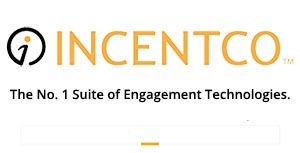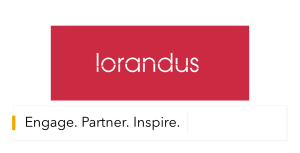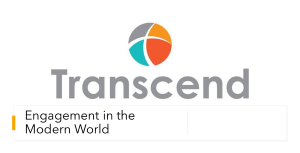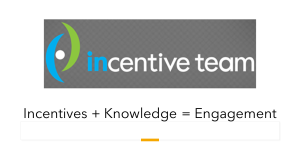Resource Library - Research
Rewards & Recognition
Published: Sep 23, 2015

Employee engagement and recognition: What is the difference and how this affects solution providers and corporate planners. Over the last two decades, the recognition field has become a multi-billion-dollar business with over a dozen leading solution providers and hundreds of smaller ones across the U.S. Companies spend billions on ... [ read more ]
The Incentive Research Foundation (IRF) surveyed industry professionals during the month of April 2010, asking them about incentive travel programs, merchandise/non-cash programs, and ROI/budget considerations. The most promising data show that respondents appear to be more optimistic about the current economic climate than they were in either the Summer or Fall of last year. When asked, "In your opinion, what impact will the economy have on your ability to plan and implement incentive travel programs?" 69% say it will have a positive impact vs. only 33% in the Fall of 2009 and just 24% in the Summer of 2009. Similarly, those who say the economy will have a positive impact on merchandise/non-cash incentive programs increased from 20% (Summer '09) and 26% (Fall '09) to 41% currently. Still, one-third of those surveyed predict that budgets for incentive travel will decrease this year, while 37% say they'll remain unchanged. Things were a little better on the merchandise/non-cash side, where only 22% expect a decline (down from 51%), while 40% predict an increase and 37% say they see no change in budgets. This indicates that although there's an uptick in optimism about the economy in general, it may not translate into more money for programs – at least not in the near term. ... [ read more ]
Are there differences in how a computer manufacturer plans and implements an incentive program versus how a pharmaceutical company or new car dealer does? What about a commercial banking operation, insurance agency or a telecommunications company? Are there processes, types of incentives used, or other nuances that are unique to these markets? Which industries are more likely to develop their programs in-house, as opposed to securing an outside vendor? The Vertical Market Study attempts to answer these and other questions. It provides a full report on how the six specific industries planned and implemented incentive travel,
motivational meetings and special events.... [ read more ]
Each year in the United States, organizations spend tens of billions of dollars on cash and non-cash rewards for consumer, distributor, sales and employee incentive programs –merchandise, gift cards, group and individual travel programs, time off, cash, etc. But few organizations invest the necessary time to understand which rewards should be used for which people to encourage what outcomes... [ read more ]
Sales Engagement
Published: Feb 20, 2018

Over the last few years, the recognition field has seen a significant shift from traditional length-of-service awards to programs that focus on supporting critical organizational goals -- quality service to internal or external customers, participation in volunteer initiatives, a willingness to go the extra mile, etc. ... [ read more ]
Published: Mar 23, 2023

Kicking off the new Enterprise Engagement Alliance Brand Engagement 360 Knowledge Management program with the Association of National Advertisers, this primer on Brand Engagement 360 is prepared for marketing and agency management ready to implement a strategic brand engagement process that includes its internal and other stakeholders--including employees, distribution and supply chain partners, communities, volunteers, donors etc. This article summarizes the two key phases of the process: 1) Strategic brand purpose definition and 2) Implementation. Neither require major investments in time and money and in fact are designed to save both over time while enhancing performance and stakeholder experiences through greater alignment and efficiency. These processes are based on over 40 years of academic research and processes time tested in the world of total quality management in factories around the world. ... [ read more ]
Published: Dec 14, 2021

With an increasing focus on professional program design, return-on-investment management, and effective human capital management and reporting, everyone in business can benefit from the most comprehensive, authoritative knowledge management center in the field of stakeholder engagement.... [ read more ]
Published: May 21, 2019

Ask anyone involved with technology implementation, and they'll tell you that the most frequent cause of failure is to strategically and consistently address the people issue. ... [ read more ]
Published: Jan 18, 2017
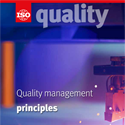
This is the first installment of a three-part series on the creation of engagement standards, their evolution, research supporting them and potential implications.... [ read more ]
Published: Nov 10, 2016

Since the formation of the Enterprise Engagement Alliance at TheEEA.org in 2008, a number of companies in traditional areas of performance improvement, meetings, incentives, recognition, technology and promotional products have ... [ read more ]
Published: Feb 28, 2023

This "model" human capital report condenses the longer profile of the "ideal" practitioner of Stakeholder Capitalism - a fabricated organization known as IMC, an integrated communications company. See ESM: -"The Perfect Company: Anatomy of an Ideal Practitioner of Stakeholder Capitalism." This model was created to help organizations of all sizes visualize the format and contents of a human capital report based on ISO 30414 Human Capital reporting standards for employees and ISO 10018 People Engagement standards for customers, channel and supply chain partners, and communities. ... [ read more ]
Published: Jan 18, 2022

The concept of Stakeholder Capitalism has existed for decades but there remains confusion about the definition that is either a natural phenomenon with the emergence of any new concept or in some cases an effort to poke holes in the concept by deliberately mis-defining it. ... [ read more ]
Published: Aug 17, 2017

In his book, Payoff: The Hidden Logic That Shapes Our Motivations, behavioral psychologist Dan Ariely details an experiment that pitted three motivators against each other. ... [ read more ]
This study delves into the mechanics of sales incentive programs, providing managers with useful information to design successful sales initiatives at their own companies and providing their corporate decision makers with hard evidence. It found that properly structured programs can increase sales by at least 10 percent. ... [ read more ]
This recently conducted analysis by The Incentive Research Foundation (IRF)of one company's long-standing use of travel awards as a motivational tool shows that such incentives have a clear, measurable and positive impact on corporate culture and employee performance, as well as a broader "ripple effect" on the economy of the region where an incentive travel program (ITP) is held.
Overall, the study concluded that the importance of these programs should not be undervalued; their impact and their value reach well beyond the typical event timeline. Earners of the incentive travel program are far from the only beneficiaries of the program. The sponsoring company, the destination and the suppliers all receive significant benefits as well.
... [ read more ]
Published: Jun 21, 2016

Few people in academia better understand the convergence of analytics and Enterprise Engagement than Charles Scherbaum, Associate Professor of Psychology at Baruch College and a member of the doctoral faculty at the Graduate Center of the City University of New York. Scherbaum, an early contributor to the Enterprise Engagement Alliance curriculum on analytics... [ read more ]
Given that the Incentive Research Foundation (IRF) is charged with advancing the science of incentives, it surveyed industry professionals to obtain their opinions about the more salient trends affecting the industry during 2009 and leading into 2010. The IRF asked these professionals questions on trends with regard to incentive travel programs, merchandise non-cash programs, and budget changes forecast for 2010. Findings indicate that the trends are stabilizing for each of the core issues since March 2009. However, the trends remain significantly lower than in 2008. Survey participants expect more domestic than international destinations, "slightly smaller" budgets, and shorter stays for incentive travel in 2010. A majority of participants also expected decreased award values on the merchandise side.
... [ read more ]
Published: Sep 14, 2015
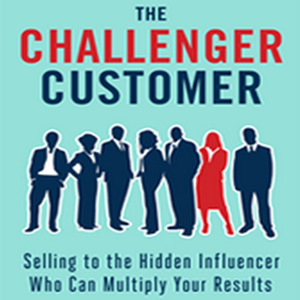
A new book, The Challenger Customer: Selling to the Hidden Influencer Who Can Multiply Your Results, provides a perspective on the current B2B selling environment that’s essential reading to anyone interested in sales force and customer engagement. We put this book in the "wow" category for ... [ read more ]
Published: Apr 19, 2022

Close observers of the Stakeholder Capitalism movement will note that there is much talk, but little apparent action beyond public pronouncements and donations. ... [ read more ]
Published: Nov 15, 2017

The 10018 Guidelines on People Involvement and Competence were created by the ISO (International Organization for Standardization) Technical Committee ISO/TC 176, Quality management and quality assurance, Subcommittee SC 3, Supporting technologies. These standards are based on ... [ read more ]
The Incentive Research Foundation (IRF) surveyed industry professionals during the month of April 2010, asking them about incentive travel programs, merchandise/non-cash programs, and ROI/budget considerations. The most promising data show that respondents appear to be more optimistic about the current economic climate than they were in either the Summer or Fall of last year. When asked, "In your opinion, what impact will the economy have on your ability to plan and implement incentive travel programs?" 69% say it will have a positive impact vs. only 33% in the Fall of 2009 and just 24% in the Summer of 2009. Similarly, those who say the economy will have a positive impact on merchandise/non-cash incentive programs increased from 20% (Summer '09) and 26% (Fall '09) to 41% currently. Still, one-third of those surveyed predict that budgets for incentive travel will decrease this year, while 37% say they'll remain unchanged. Things were a little better on the merchandise/non-cash side, where only 22% expect a decline (down from 51%), while 40% predict an increase and 37% say they see no change in budgets. This indicates that although there's an uptick in optimism about the economy in general, it may not translate into more money for programs – at least not in the near term. ... [ read more ]
Published: Sep 13, 2021

Social media, blogs, and e-newsletter technology enable almost any organization to become its own media company to generate leads, enhance thought leadership, build relationships and enhance sales ratios. Very few in business implement strategic integrated communications programs, often because they lack the people with the journalistic and other content creation skills needed for effective content marketing or they fail to integrate the communications programs into their sales and support process. ... [ read more ]
Are there differences in how a computer manufacturer plans and implements an incentive program versus how a pharmaceutical company or new car dealer does? What about a commercial banking operation, insurance agency or a telecommunications company? Are there processes, types of incentives used, or other nuances that are unique to these markets? Which industries are more likely to develop their programs in-house, as opposed to securing an outside vendor? The Vertical Market Study attempts to answer these and other questions. It provides a full report on how the six specific industries planned and implemented incentive travel,
motivational meetings and special events.... [ read more ]
Published: May 28, 2019

Despite hundreds of billions of dollars spent annually by organizations to engage employees and customers, numerous independent research studies find that neither employee nor customer engagement have improved appreciably in more than a decade. ... [ read more ]
Published: Jan 18, 2021

Conceived in the 1990s, the concept of Total Rewards represented a revolution in thinking related to compensation that to this day has not been fulfilled at many organizations, that is: a strategic, holistic approach to compensation that considers every aspect of the employee experience and his or her capabilities and potential contributions to the organization. ... [ read more ]
Showing Results 251 - 275 of 297
























